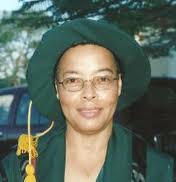The feasibility study on the establishment of an International Centre for Biodiversity Research and Low Carbon Development at the University of Guyana is expected to be finalised by October. This is according to Acting Vice Chancellor, Dr Marlene Cox who revealed that the University of Guyana is expected to conduct the feasibility study in association with the World Bank.





Comments are closed.